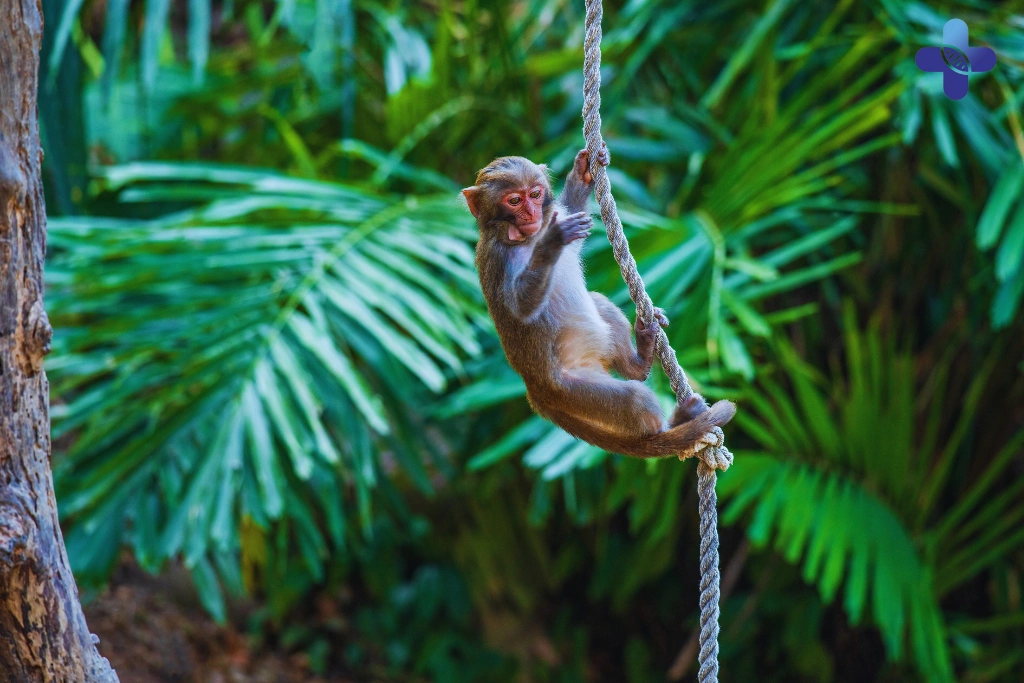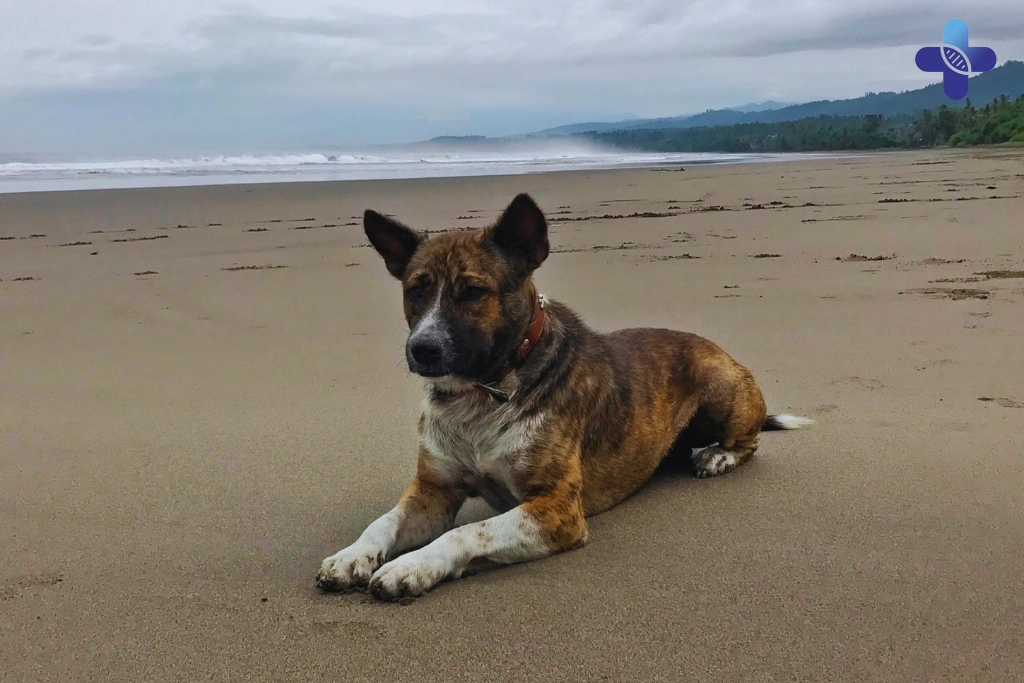Bali is a dream destination for many families, but when it comes to keeping kids safe around animals in Bali, every parent wants to feel prepared. From curious monkeys in the forest to street dogs wandering the beach, Bali offers unforgettable experiences—yet also requires caution. This 2025 parent’s guide provides simple, practical advice to help you teach your children how to interact with animals respectfully and safely. With the right knowledge and support from trusted services like Life Everyouth, a leading Medical Clinic in Bali, your family can enjoy Bali’s beauty with confidence and peace of mind.
A Parent’s Guide to Keeping Kids Safe Around Animals in Bali

Bali can be a magical place for children to explore nature and connect with animals—but it’s also a place where safety needs to come first. From playful monkeys in the forest to street dogs near beach cafés, unfamiliar animal encounters can catch even the most watchful parents off guard. If you’re traveling with toddlers or young children, it’s completely normal to worry about how your child might react or behave. The key is not to avoid the adventure, but to prepare for it—with gentle teaching, clear rules, and a calm mindset.
This guide was created to help parents like you feel informed and confident. You’ll find practical phrases to use with your kids, tips for safe animal encounters, and emergency advice just in case. Whether you’re planning a family day at Monkey Forest or a beach picnic near local dogs, Life Everyouth, a trusted Medical Clinic in Bali, is here to support you. With the right preparation, keeping kids safe in Bali becomes less about fear—and more about building joyful, respectful experiences with nature.
The Golden Rule You Must Teach: “Look With Your Eyes, Not With Your Hands
One simple rule—“Look with your eyes, not with your hands”—can be the difference between a magical animal encounter and a medical emergency. In Bali, animals like monkeys, cats, and dogs roam freely in both tourist areas and rural settings. For young children who are naturally curious, this freedom can lead to unintentional touches or sudden movements that animals might misinterpret. Teaching this golden rule early, and reinforcing it daily, helps prevent these interactions before they begin.
Start by using age-appropriate language. For toddlers, say: “We watch animals like we watch cartoons—no touching, just looking.” For older kids, explain that animals—just like people—have feelings and need personal space. Practicing this at home with pets or stuffed animals helps reinforce the message before arriving in Bali. At Life Everyouth, we encourage families visiting Bali to role-play these situations, especially before visiting places like Ubud’s Monkey Forest or beach areas with stray dogs.
As a trusted Medical Clinic in Bali, Life Everyouth Bali often sees avoidable injuries caused by accidental animal contact. Prevention through education is always the best first step. By consistently applying this one rule, you’re not only keeping kids safe in Bali, but also nurturing a deeper understanding of empathy, boundaries, and responsibility. And if anything unexpected happens, our team at Bali Medical Clinic is always here to provide quick, child-friendly care and peace of mind.
A Parent’s Playbook for… The Monkeys

Before taking your child to places like the Ubud Monkey Forest, it’s essential to set clear expectations using simple, calming language. Explain that monkeys are not like cartoon characters or pets—they’re wild animals, and we treat them with quiet respect. Say phrases like “Monkeys are fun to watch, but we don’t try to play with them” or “We use our eyes to see, not our hands to touch.” These gentle reminders help children understand what behavior is safe without making them afraid.
It’s also helpful to turn this into a little adventure briefing. You can say, “We’re going into the monkey’s home, so we follow their rules.” Make it fun by role-playing how to walk slowly, keep food hidden, and hold hands the whole time. If your child is especially active or excitable, rehearse what to do if a monkey comes close—“We stop. We stay still. We look at the ground.” These calm, simple actions can prevent sudden movements that might trigger animal reactions.
Lastly, before any wildlife visit, locate and save the number of the nearest Medical Clinic in Bali, such as Life Everyouth Bali. Having a plan for “just in case” moments reduces stress and builds confidence in both parent and child. As a trusted Bali Medical Clinic, Life Everyouth is ready to assist families should any minor scratches or scares occur—though with preparation, most visits remain joyful and incident-free.
During the Visit
During your visit to places like the Ubud Monkey Forest, stay physically close to your child and hold their hand at all times. This isn’t just for safety—it also provides a sense of calm and security in what can be a very stimulating environment. Double-check that their bags, pockets, or water bottles are empty and sealed. Even something small like a shiny snack wrapper or dangling accessory can attract a monkey’s attention. These curious animals move quickly, so minimizing triggers helps keep everyone safe.
Teach your child simple, empowering phrases that guide their behavior. One of the best is: “Be still like a tree.” You can even make it into a game before you arrive. Show them how to stop, plant their feet, and fold their arms like quiet branches. Reinforce the idea that “we let the monkey walk away”—because animals make better choices when we stay calm and respectful. At Life Everyouth Bali, we often hear from parents who say this little script helped their child stay composed when it mattered most.
Even with precautions, wildlife can be unpredictable. That’s why knowing your closest Medical Clinic in Bali is key. At Life Everyouth, we’re experienced in treating minor bites or scratches in children with a gentle, child-first approach. Prevention is always the goal—but if something does happen, visiting a trusted Bali Medical Clinic like ours ensures peace of mind and immediate care when your family needs it most.
A Parent’s Playbook for… Bali’s Dog

Dogs are a common sight in Bali—on beaches, village roads, and even near cafés. While many are calm and uninterested in humans, some may feel threatened by sudden movements, loud voices, or curious little hands. That’s why we recommend teaching your child the “Be a Tree” technique: stand still, fold arms in front, eyes on the feet, and stay silent. This simple posture helps prevent the dog from feeling challenged, which can reduce the risk of barking, chasing, or worse.
Turn it into a fun practice game before your trip: “If a dog comes close, we be a tree!” Repeat this during walks at home so it becomes second nature. You can even act it out together by saying, “Let’s be trees now—quiet and still.” This gives children a sense of control during unexpected encounters, helping them feel brave and calm. Many parents visiting Bali with kids have told Life Everyouth Bali that this one technique made them feel safer and more confident in unfamiliar settings.
As a trusted Medical Clinic in Bali, Life Everyouth often sees injuries that could have been prevented with simple techniques like this. Teaching your child to respond with calm stillness—rather than panic or shouting—can make a huge difference. At Bali Medical Clinic locations like ours, we not only treat dog-related injuries, but we also provide education to help prevent them in the first place. Safety isn’t just about reacting—it’s about preparing, together.
Why We Don’t Pet Dogs We Don’t Know
For many kids, especially those who love animals, the hardest rule to follow is not reaching out to pet every dog they see. It’s important to explain clearly and calmly: “We don’t pet dogs unless we know them and ask the owner first.” In Bali, many dogs are strays or semi-owned, meaning they’re not used to being touched by strangers. What feels like affection to a child may feel like a threat to the dog. This can result in defensive behavior like growling or snapping, even from a dog that looks friendly.
This doesn’t mean Bali dogs are dangerous—it just means they need space. Help your child understand that different countries have different rules for animals. You can say: “In Bali, dogs have their own way of living. We watch, we smile, but we don’t touch.” By shifting the focus from interaction to observation, your child learns to respect boundaries and stays safe. This simple rule is a key part of keeping kids safe in Bali, and it builds empathy along the way.
If your family plans to stay in Bali long-term or frequently visits places with stray dogs, you might want to talk to Life Everyouth, your local Medical Clinic in Bali, about rabies pre-exposure vaccination. At Life Everyouth Bali, we often assist parents in navigating the best options for protecting their children while they explore the island. Prevention, awareness, and clear communication can make your child’s time in Bali both joyful and safe—and we’re here to support you throughout your journey.
The “What If” Plan: Staying Calm and Prepared
Even with all the teaching, practice, and supervision, unexpected things can still happen. A startled monkey, a playful tug from a stray dog, or even an accidental scratch while feeding animals at a petting zoo—these are situations no parent wants to face, but being prepared makes all the difference. The key is to stay calm, act quickly, and know where to go. As a parent, having a plan in place empowers you to lead with confidence, even during stressful moments.
The first step after any animal-related incident is to clean the wound immediately with soap and running water for 15 minutes. This basic but crucial step can prevent infection and lower the risk of more serious concerns like rabies. After first aid, head to the nearest Medical Clinic in Bali, such as Life Everyouth Bali, for professional evaluation. We provide gentle, child-focused care and follow the latest safety protocols. For step-by-step guidance, please read our emergency guide on dog bites in Bali or what to do after a monkey scratch.
Having this plan gives you something even more valuable than knowledge—peace of mind. You’re not just reacting to an incident; you’re prepared for it. And that calm, prepared energy transfers to your child, helping them recover emotionally as well as physically. As your trusted partner in family health, Life Everyouth, a leading Bali Medical Clinic, is always ready to support you—whether it’s a tiny scare or something more serious. You’re not alone.
Conclusion Keeping Kids Safe Around Animals in Bali: A Parent’s Guide

By teaching your child to respect animals, use calm body language, and follow simple safety rules, you’re giving them more than just protection during a holiday—you’re equipping them with life skills. These moments of preparation help children build awareness, empathy, and self-control. Whether it’s practicing the “Be a Tree” pose or learning to admire animals from a distance, keeping kids safe in Bali starts with small, thoughtful conversations that make a big difference.
At Life Everyouth Bali, we’re more than a trusted Medical Clinic in Bali—we’re your partner in raising safe, confident young travelers. Our team is here to support you with professional care, local knowledge, and the peace of mind every parent deserves. From beach outings to jungle adventures, let Life Everyouth, your reliable Bali Medical Clinic, walk alongside your family to ensure every experience in Bali is both magical and safe.
Frequently Asked Question Keeping Kids Safe Around Animals in Bali: A Parent’s Guide
At what age can children understand these safety rules?
Even toddlers as young as two years old can start learning simple safety concepts through repetition and gentle reminders. A phrase like “We look, we don’t touch” can become second nature when practiced daily. Older children, around age five and up, can understand why these rules matter, especially when you explain that some animals in Bali may get scared or feel threatened. At Life Everyouth, a family-focused Medical Clinic in Bali, we often help parents understand how early education leads to lasting safety habits.
Is it a good idea to take my toddler to the Ubud Monkey Forest?
It really depends on your child’s personality and how well they follow instructions. If your toddler is calm, enjoys being held or staying close to you, and doesn’t startle easily, the Monkey Forest can be an enriching experience. But if they tend to run, shout, or wave their arms excitedly, it may be overstimulating and potentially risky. As a precaution, always know the location of the nearest Bali Medical Clinic, such as Life Everyouth Bali, before visiting any wildlife attraction.
My child loves dogs. How do I stop them from rushing over?
Start the conversation well before your trip by explaining that Bali dogs are different from pets at home. Use simple language like: “We only pet dogs when the owner says yes—and Bali street dogs don’t have owners.” Practice saying hello to dogs from a distance, and reward calm behavior. At Life Everyouth, we encourage this approach for all families traveling to Bali with kids. As a leading Medical Clinic Bali, we prioritize education just as much as treatment.
What if a monkey jumps on my child?
First, remain calm—your reaction will guide your child’s. Do not scream or try to pull the monkey away, as this can escalate the situation. Instruct your child to stand still, avoid eye contact, and gently drop anything they may be holding. Monkeys typically lose interest quickly and move on. After the incident, notify a staff member and visit Life Everyouth Bali, a trusted Medical Clinic in Bali, to have your child checked for scratches or minor injuries, and receive proper follow-up care.
Are there child-friendly animal parks in Bali?
Yes! Places like Bali Safari & Marine Park or Bali Zoo offer more structured and controlled animal interactions, which are ideal for younger children or first-time animal experiences. These settings have safety guidelines, trained staff, and designated viewing areas, making them a great alternative to encounters in the wild. For added peace of mind, Life Everyouth, your nearby Bali Medical Clinic, is always available should you need health assistance during your family’s adventure.
Should my child get a rabies vaccine before visiting Bali?
This decision depends on your travel plans. If you’re staying long-term or expect your child to be around animals frequently (e.g. volunteering, rural visits), a pre-exposure rabies vaccine may be recommended. For short holidays, prevention—like avoiding contact with unknown animals—is often enough. We advise discussing it with your pediatrician or consulting Life Everyouth, a leading Medical Clinic in Bali, for local context and expert advice on your child’s needs.
What should I pack for animal-related first aid?
Along with your regular travel medical kit, include child-friendly antiseptic wipes, cartoon-themed plasters to comfort little ones, and a printed card with your hotel address and emergency numbers. Also, save the contact details of the nearest Bali Medical Clinic, like Life Everyouth Bali, in your phone and wallet. A little preparation goes a long way in reducing stress during unexpected situations.
Are Bali cats safe to be around?
Most cats in Bali are harmless, but like all animals, they can scratch if startled or handled roughly. Even a small scratch can lead to infection, especially in humid tropical climates. That’s why the rule “look, don’t touch” applies to cats too. At Life Everyouth, we see occasional cases of minor cat scratches, and our team at the Medical Clinic Bali always recommends cleaning the wound immediately and watching for signs of infection.
How do I explain rabies to my child without scaring them?
You don’t need to explain the disease itself. Instead, frame it as a general safety rule: “Some animals might carry germs that make us sick if they bite or scratch, so we never touch them.” This keeps the message age-appropriate while still encouraging caution. At Life Everyouth Bali, our child-centered approach includes helping families find the right words for tricky conversations—just one more way your trusted Medical Clinic in Bali can support you.
What are the exact steps after a bite or scratch?
Begin by washing the area thoroughly with soap and running water for 15 minutes. This is a critical first step to prevent infection. Next, seek professional medical care—even if the injury looks minor. At Life Everyouth, your reliable Bali Medical Clinic, we assess the risk, provide proper wound care, and begin any necessary post-exposure treatment. For detailed steps, refer to our emergency guide on animal bites in Bali.
